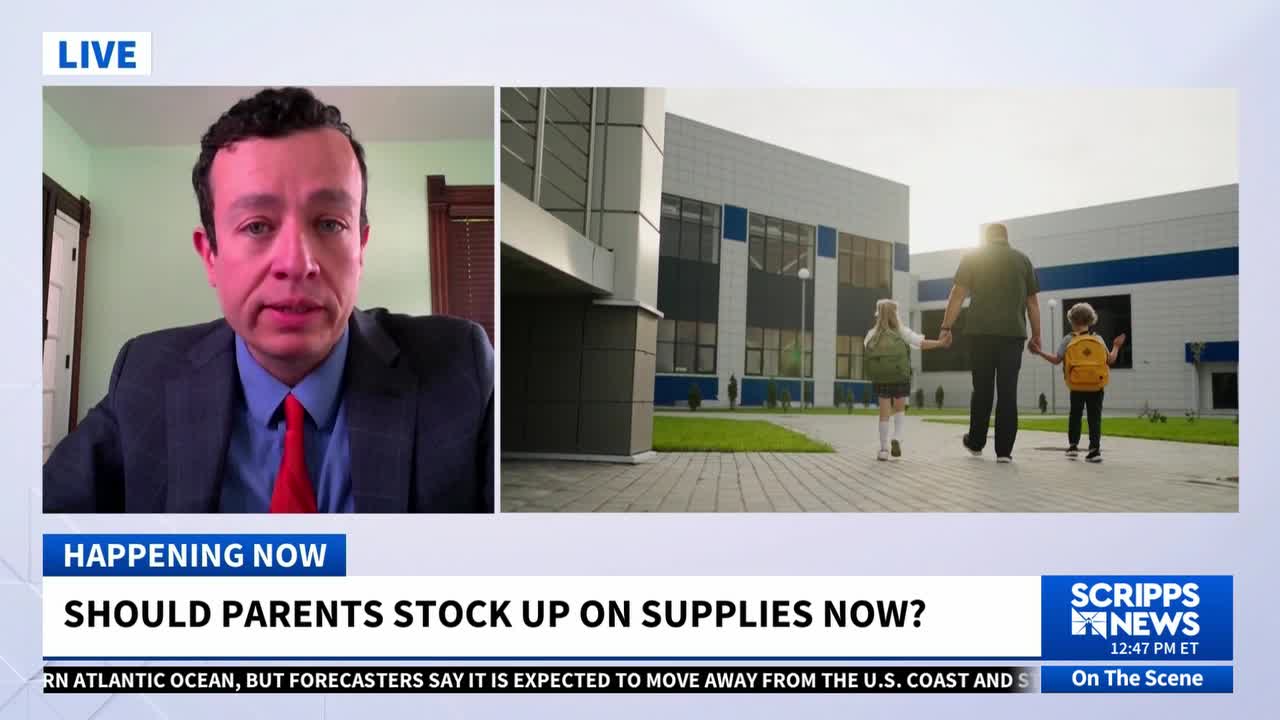As the new school year approaches, excitement fills the air for many students eager to showcase new outfits and accessories. However, parents are confronting a starkly different reality: sticker shock.
An alarming average of over $600 is what parents are expected to spend per student on back-to-school supplies this year.
In a bid to manage these rising expenses — ranging from clothing and shoes to essential school supplies — many parents are attempting to set budgets.
Yet, widespread economic uncertainty, including impending tariff increases and persistent inflation, has prompted experts to advise early shopping as a crucial strategy for saving money.
"The fact of the matter is, is that tariffs have been starting to impact prices," said Michael Negron, senior fellow for economic opportunity at American Progress. "We've seen inflation climb in the latest readings. And parents watch the news. They are paying attention and they know tariffs will continue to affect prices as retailers restock their shelves."
"That's why we have a record number of parents shopping early," he added. "And so it's a good idea to do that, and particularly, to do your clothes and your shoe shopping soon if you're able to do that, because those are two areas where experts are predicting that prices could increase by as much as 40% over the coming months because those are products that are largely made in countries like China and Bangladesh, and Cambodia, Vietnam, India. They've all been hit with 20% or higher tariffs."
The White House recently announced new tariffs against over 60 countries, set to take effect on Aug. 7, with rates varying from 10% to 41%. President Donald Trump has asserted that these tariffs will compel U.S. companies to reshore supply chains and boost domestic manufacturing. However, many economists and supply chain experts warn that the repercussions could span years, likely resulting in increased prices during the interim.
"If you look at just gross domestic product, the overall economy, those numbers in the first quarter, we saw a shrinkage of the economy," Negron explained. "There was a frontloading of importing, of businesses trying to get ahead of the tariffs. And then we saw just as much of a distortionary increase in the gross domestic product in the second quarter because that import number went way down."
- IN CASE YOU MISSED IT: Back-to-school shopping: Will prices be higher this year?
A recent Bankrate survey highlighted that 20% of parents now express concern that rising costs for school essentials will strain their finances. This increase in expenses could lead many to depend more on credit cards and buy-now-pay-later services, a trend Negron cautions could have detrimental effects on the economy.
"It's a real challenge, to be honest," he said. "... Credit Karma did a survey that found that 44% of parents are expecting to enter into some kind of debt due to school supplies. That's up from 34% last year. And so we've got a lot of different numbers showing the same thing."
This story was initially reported by a journalist and has been converted to this platform with the assistance of AI. Our editorial team verifies all reporting on all platforms for fairness and accuracy.




